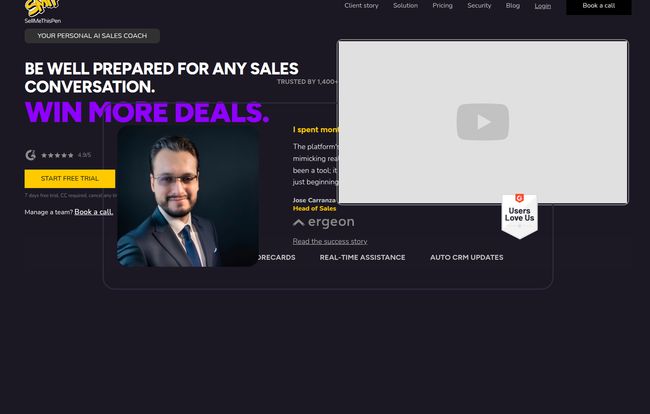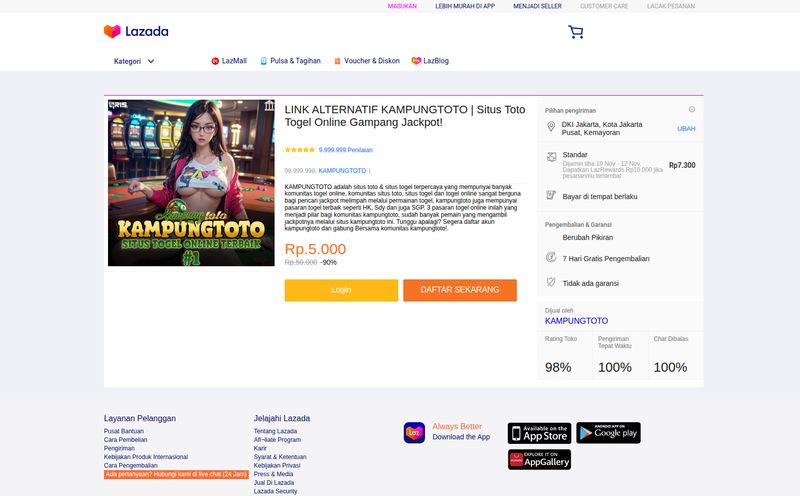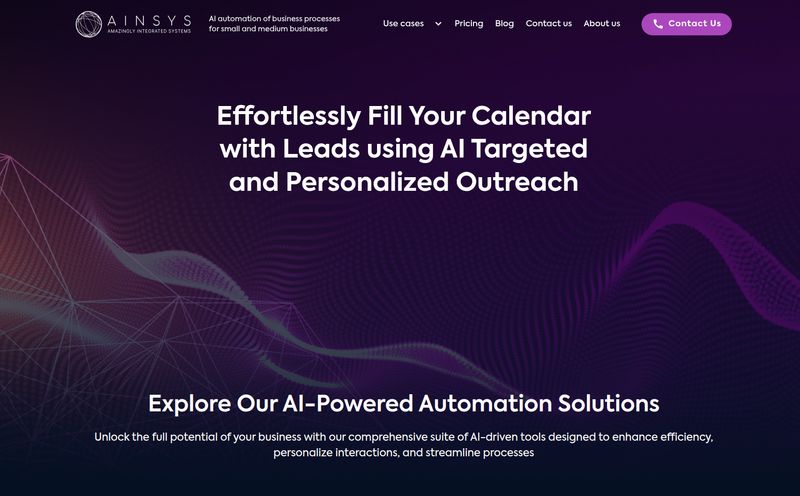If you've ever been in sales, you've experienced the cringe. You know what I'm talking about. It’s that forced, awkward role-play session with your manager where you stumble through a script, they nitpick every word, and you both walk away feeling like you wasted 30 minutes. It's a necessary evil, or so they tell us. We need practice, but the practice we usually get... well, it sucks.
For years, I've seen teams struggle with this. We spend fortunes on sales training methodologies, fancy playbooks, and endless slide decks. But when it comes time to actually practice having a conversation, we're left with that same stilted role-play. It’s like learning to box by only shadowboxing. You never feel the sting of a real jab.
So, when a tool with a name like SellMeThisPen AI lands on my desk, my curiosity is definitely piqued. The name alone, a nod to that classic sales challenge from The Wolf of Wall Street, tells me these folks get it. They understand the culture. But does the tool itself live up to the clever name? I spent some time digging in, and honestly, I'm pretty impressed. This might just be the flight simulator for sales calls that we've all been secretly hoping for.

Visit SellMeThisPen AI
So, What Is SellMeThisPen AI Anyway?
At its core, SellMeThisPen AI is an AI sales coach. But that's a bit of a generic term these days, isn't it? What it really is is a dedicated, always-on platform for your sales reps to practice, get feedback, and even get help during live calls. Think of it as a combination of a tireless sparring partner, an observant coach watching the game tape, and a hyper-efficient personal assistant who handles the boring stuff.
It's built on a few key pillars: AI-powered role-playing, real-time assistance during actual conversations, and automated CRM updates. The whole idea is to get reps so well-prepared that no customer question can throw them off their game, all while clawing back precious hours lost to manual admin work. A bold claim, for sure.
The Features That Actually Move the Needle
A feature list is just a list. What matters is how those features solve real, everyday sales problems. And from what I've seen, the team behind this tool has been in the trenches.
Your New Favorite Sparring Partner: AI Role-Play
This is the headline act. Instead of bothering your manager or a teammate, you can hop into a role-play session with a surprisingly realistic AI. The platform lets you practice against different customer personas, each with their own objections and questions. You can run through your pitch ten, twenty, a hundred times without anyone getting annoyed.
This is where confidence is built. It’s the freedom to fail without consequence. You can try out that new opening line, test a different way of handling the price objection, and just get your reps in. The AI doesn’t have an ego, it doesn’t have a bad day, it’s just there to help you sharpen your skills. It's a game-changer for new hires who need to ramp up quickly and for veterans looking to polish their approach.
Instant Feedback with Auto Scorecards
After your role-play session, the platform doesn't just say "Good job!". It gives you a detailed scorecard. It analyzes your talk-to-listen ratio, your pacing, whether you hit the key points from your playbook, and how you handled objections. This is the kind of objective, data-driven feedback that is so hard to get consistently.
No more vague advice like "be more confident." Instead, you get actionable insights like, "You spoke for 80% of the call, try asking more open-ended questions to engage the prospect." For a sales leader, this is gold. You can see exactly where your team members are struggling and provide targeted, effective coaching.
A Co-pilot in Your Ear: Real-Time Assistance
Okay, this is where it gets a little sci-fi, in a good way. During a real call, SellMeThisPen AI can act as a live assistant. It listens in and can surface relevant information from your playbook or battle cards right when you need it. A customer brings up a competitor? Bam, your competitive differentiators pop up. They ask a tricky question about a specific feature? The answer is right there on your screen. It's not about turning reps into robots reading a script. It's about giving them the right information at the right moment so they can have a more intelligent, confident conversation.
Kiss CRM Drudgery Goodbye
If there's one thing every single sales rep on the planet hates, it's updating the CRM. It's the necessary evil that eats into selling time. This is maybe the most practical, universally loved feature. After a call, the tool automatically generates a concise summary and pushes it, along with call notes, directly into your Salesforce or HubSpot instance.
Just think about that for a minute. All those 10-15 minute chunks of time after every call spent typing up notes? They're gone. That's hours back every week—hours that can be spent prospecting, following up, and actually... y'know, selling. This alone could justify the cost for many teams.
Let's Talk Money: A Look at the Pricing
Alright, the features sound great, but what's it going to cost? The pricing structure is pretty straightforward and thankfully transparent. They break it down into three main tiers.
| Plan | Price | Best For | Key Features |
|---|---|---|---|
| Pro | $59 /seat/mo | Individuals & small teams (1-4) | Default scenarios, GPT 3.5, basic integrations, email support. |
| Business | $79 /seat/mo | Growing teams (5+) | Custom scenarios, GPT 4, premium voices, custom playbooks, video onboarding. |
| Enterprise | Custom | Large teams (20+) | Deep customization, custom integrations, dedicated account manager. |
My take? The Pro plan is a great entry point for a solo rep or a very small team to get a feel for the AI role-play. But the Business plan is where the real magic happens. For an extra $20 a month, you get access to GPT-4 (which is significantly more nuanced for conversation), custom scenarios tailored to your business, and better support. For any serious team, this feels like the obvious choice. The Enterprise plan is for the big guns who need all the custom bells and whistles and dedicated hand-holding.
The Good, The Bad, and The AI
No tool is perfect, so let’s get into the nitty-gritty.
What I'm Genuinely Excited About
The realism of the AI role-play is a huge plus. It’s not a dumb chatbot. It understands context and can push back in believable ways. The time saved from the auto CRM updates is a massive, tangible benefit that any sales leader can easily calculate an ROI on. I also love that it's designed for different roles within a sales org—from the rep on the front lines to the founder trying to build a repeatable sales process.
Some Things to Keep in Mind
This isn't really a con, just a reality. To get the most out of a tool like this, you have to put the work in upfront. Garbage in, garbage out. You'll need to define your customer personas and build out your playbooks to make the training truly effective. The platform helps, but it can't read your mind. Also, the lower-tier Pro plan is a bit limited. If you want to really customize the experience to your specific product and market, you'll need to spring for the Business plan. Some of the more advanced integrations are also locked behind the Enterprise wall, which is pretty standard practice but something to be aware of.
Final Thoughts: Is SellMeThisPen AI Worth the Investment?
So, we circle back to the main question. Is this tool worth it? In my opinion, yes, with a small caveat. If your team is struggling with call confidence, consistent performance, and CRM hygiene (and whose isn't?), then SellMeThisPen AI presents a very compelling solution.
It tackles some of the most persistent and annoying problems in sales development and enablement. It makes practice accessible and effective, provides objective feedback, and eliminates soul-crushing admin work. It’s a tool that doesn’t just promise to make reps better; it gives them time back in their day. And in sales, time is the only currency that truly matters.
If you're a sales leader looking for a modern way to upskill your team, or a rep who just wants to get better on your own time, I'd say giving their 7-day trial a spin is a no-brainer. It might just be the thing that finally kills the cringey sales role-play for good.
Frequently Asked Questions
How does the AI role-play actually work?
You choose a customer persona and a scenario (e.g., a cold call, a discovery call). Then, you speak to the AI through your microphone just like a real call. The AI responds based on its programming for that persona, raising objections and asking questions. It's designed to be a realistic, interactive conversation.
Is it difficult to set up with my CRM?
From what I've gathered, the integrations with HubSpot and Salesforce are designed to be pretty smooth. Like most SaaS integrations, it usually involves authorizing access and mapping a few fields. The Business plan includes a video onboarding session to help you get everything connected correctly.
Can I customize the training scenarios for my specific industry?
Yes, but you'll need the Business plan or higher. The Pro plan comes with default scenarios, while the higher tiers allow you to create custom AI role-plays, playbooks, and battle cards that reflect your products, customers, and competitors. This customization is key to making the training highly relevant.
Is there a free trial I can use?
Yes! According to their pricing page, both the Pro and Business plans offer a 7-day free trial. This is a great way to test out the core features and see if it's a good fit for your team before committing.
Is this tool beneficial for a solo sales rep or founder?
Absolutely. The Pro plan is priced for individuals and small teams. For a founder who is also the primary salesperson, it's an incredible way to refine your pitch. For a solo rep, it's a way to get coaching and practice without needing a large team structure around you.
What's the real difference between GPT-3.5 and GPT-4 for role-playing?
Think of GPT-4 (in the Business plan) as a more experienced, nuanced conversationalist. It's generally better at understanding complex prompts, maintaining context over a longer conversation, and generating more human-like, less predictable responses. For sales role-play, this means more realistic and challenging interactions.



